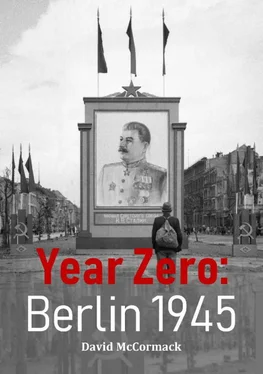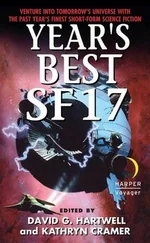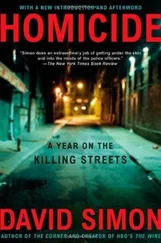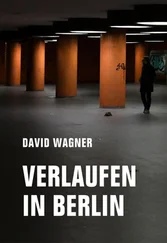Not everyone displayed the same degree of empathy as Byford-Jones. Indeed, some of Berlin’s permanent residents were hostile to the newcomers, referring to them as ‘Polacken’ and ‘Schmarotzer’. The refugee reception centres, including the one set up at Templehof Airport became known by the disparaging terms as ‘New Poland’ and ‘Garlic Settlements’.
For many years, the suffering of the German expellees remained all but forgotten. In Berlin, it took until 2006 for a temporary exhibition to be mounted in their memory. The exhibition, ‘Forced Paths: Flight and Expulsion in 20 thCentury Europe’ was not without controversy. On the very day it opened, the Polish Prime Minister made a public visit to Auschwitz. During an interview, he stated that, ‘It is important to remember who the perpetrators of WWII were, and who were the victims’. Former German Chancellor Gerhard Schroeder entered the fray by arguing that, ‘A permanent exhibit would risk a disproportionate focus on German suffering’. Irene Runge, Director of Berlin’s Jewish Cultural Association said, ‘I don’t think it would be fair not to give them a chance to remember their own path. On the other hand, I’m not much interested in hearing about it’. Nazi Germany sowed the wind, they eventually reaped the whirlwind in the form of almost unimaginable human suffering. A tragic postscript to a terrible war, in which Berlin was at the very epicentre.
Relations between the occupying powers in Berlin continued to deteriorate as 1945 neared its close. The Soviets on one side, and the Americans, British and French on the other were by now totally convinced that the obligations laid out at Potsdam were not being met. Stalin was not in the least bit interested in fulfilling the commitments he had made regarding free and fair elections in Eastern Europe. For their part, the Americans were stalling on the thorny issue of German reparations. The cracks which had been papered over in the name of wartime cooperation were becoming ever more apparent with each disagreement which arose. Stalin’s long-serving Foreign Minister still believed that it was possible to do a deal with the Allies. His master quickly disabused him of any such notions. Stalin’s stinging rebuke cut Molotov to the quick:
At some point you gave in to pressure and intimidation on the part of the US, began to stumble, adopted the liberal course with regard to foreign correspondents and let your own government be pilloried by those correspondents in expectation that this would placate the US and Britain. Of course, your calculation was naïve. I feared that with this liberalism you would undercut our policy of of tenacity and thereby let our state down. At that time the entire foreign press yelled that Russians were caving in and would make concessions… It is obvious in dealing with such partners as the US and Britain we cannot achieve anything serious if we begin to give in to intimidation or betray uncertainty.
Stalin instructed a chastened Molotov to remove the ‘veil of amity’ which had thus far characterised relations with the Allies. From now on the Soviet Union would ‘stand firm’. In short, Molotov’s brief was to ‘display complete obduracy’.
Exhausted by the strains of war, Stalin decamped to his dacha located in the mountains of northern Georgia for a ‘rest-vacation’. However, it was not all rest and relaxation for the weary titan. Stalin devoted several days of his holiday towards the political machinations that would result in considerable reductions in Molotov’s power and influence. He also agreed to see President Truman’s emissary Averell Harriman. Their meeting went well enough, although it was clear to Harriman that Stalin’s policy of ‘increased militancy and self-reliance’ would signal trouble ahead. Notwithstanding, the administration in Washington prepared to meet the challenge of Stalin’s belligerence head on, as their attitude towards their erstwhile ally was hardening by the day.
In Berlin, Stalin’s hard-line approach had heralded the division of the city into distinct political camps. Attempts by the Catholic and Protestant churches to offer religious education were stymied by Soviet authorities, whose agenda was the complete political indoctrination of the German people. Indeed, political indoctrination became the main focus of the Soviet administration as the year of victory came to a close. In concert with indoctrination came a crack down on deserters, malingerers, black marketeers and anyone who was deemed to hold ‘questionable’ political views. The prisons in and around Berlin began to fill with those who had committed genuine crimes and those who were just unlucky. Berlin resident Gerda Drews later recalled that, ‘People were afraid to talk. If you said something wrong, you would disappear’.
Stalin was determined not only to impose his own political system on lands conquered by the Red Army, he also wanted to ensure that the Soviet Union got what it needed for post-war reconstruction. During the course of the war against Nazi Germany, the Soviet Union suffered approximately twenty-seven-million civilian and military casualties. Indeed, it would take decades for the population to return to pre-war levels. In addition to the incredible human toll exacted by the most terrible conflict in history, some 32,000 factories had been destroyed, along with 3000 towns and cities. The rebuilding of Stalin’s shattered state would be partially dependent upon war reparations. However, as this issue was never properly settled, Stalin simply stepped outside of the legal process by authorising the looting of homes and factories in Berlin and other towns and cities.
The result of Stalin’s reparations policy was the inevitable near crippling of the German economy in the eastern territories. Berlin was particularly badly effected, with food and fuel shortages becoming the norm. Yet, Berlin somehow survived the winter of what came to be known as ‘Year Zero’. The following year would bring more uncertainty, more tension, as the vortex of mistrust developed into outright enmity.
Books
Adlon, H., Hotel Adlon (Horizon 1960)
Allen, D.J., The Oder-Neisse Line: The United States, Poland, and Germany in the Cold War (Greenwood Publishing Group 2003)
Altner, H., Berlin Soldier: An Eyewitness Account of the Fall of Berlin (The History Press 2016)
Beevor, A., Berlin: The Downfall 1945 (Penguin 2007)
Bellamy, C., Absolute War: Soviet Russia in the Second World War (Macmillan 2007)
Birstein, V.J., Smersh: Stalin’s Secret Weapon (RuLit 2015)
Boldt, G., Hitler’s Last Days: An Eye Witness Account (Pen & Sword 2006)
Bullock, A., Hitler and Stalin: Parallel Lives (Fontana Press 1998)
Byford-Jones, W., Berlin Twilight (Hutchinson 1947)
Chaney, O.P., Zhukov (David & Charles 1972)
Chuikov, I.V., The Fall of Berlin (Ballantine Books 1967)
Dobbs, M., Six Months in 1945: FDR, Stalin, Churchill and Truman – From World War to Cold War (Alfred A. Knopf – New York 2012)
Douglas, R.M., Orderly and Humane: The Expulsion of the Germans after the Second World War (Yale University Press 2012)
Duffy, C., Red Storm on the Reich (Routledge 2014)
Erickson, J., The Road to Berlin: Stalin’s War with Germany Vol 2 (W&N 2003)
Forbes, R., For Europe: The French Volunteers of the Waffen SS (Helion & Company 2006)
Fest, J.C., Hitler (Penguin Books 1973)
Gaddis, J.L., The Cold War (Penguin Books 2005)
Gearson, J., and Schake, K., The Berlin Wall Crisis: Perspectives of Cold War Alliances (Palgrave 2002)
Читать дальше












